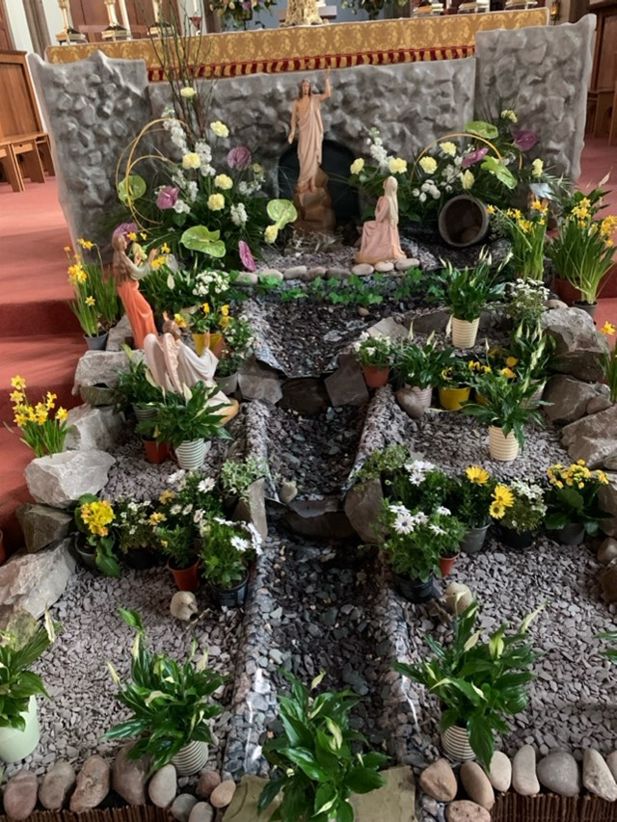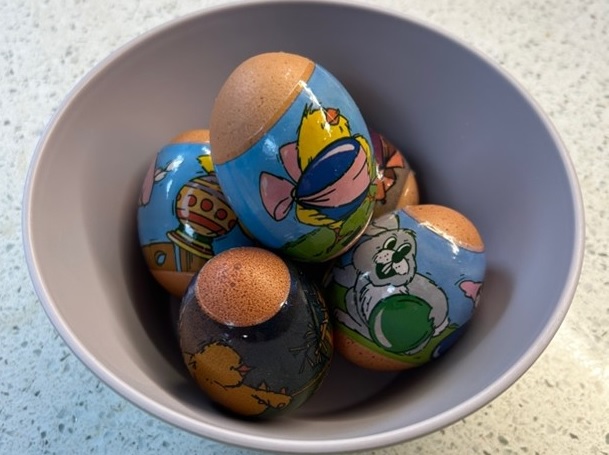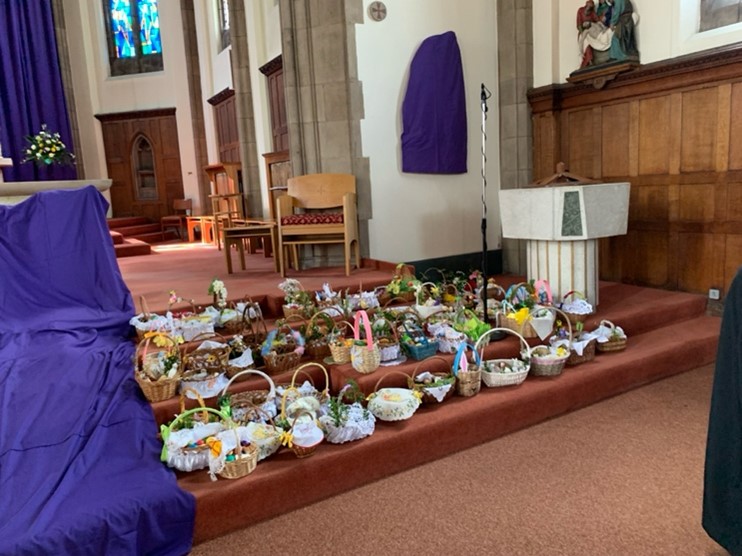'Wesołych Świąt' - Celebrating a Polish Easter in Birmingham

Written by Magdalena Skrybant, from the Institute of Applied Health Research, College of Medical and Dental Sciences, and member of our Race Equality Network.
For Roman Catholics, Easter is the most important feast. Easter, which falls on the first Sunday following the first full moon of spring, celebrates the resurrection of Jesus following his death and crucifixion.
Coming from Polish heritage (my grandparents came to Britain after the Second World War), I celebrate Easter with my family, incorporating some polish traditions.
The first important date is Palm Sunday (niedziela palmowa), which marks Jesus’ entrance into Jerusalem. Churchgoers commemorate this event by bringing palms to church to be blessed. With its temperate climate, palm trees are somewhat of a rarity in Poland, so instead people bring colourful branches into church. In some regions, the palms are very elaborate, and processions are quite a spectacle. Here in Birmingham, most Polish shops sell palms, which we take to Church to be blessed.
Holy Week
Palm Sunday is the start of Holy Week. It’s an important time for people to prepare for Easter. People can prepare spiritually, which includes praying and attending services, but in other ways too. Some people observe fasting in various degrees (e.g. meat/alcohol) and cleaning is a big thing: much like ‘spring cleaning’, people busy themselves cleaning houses from top to bottom – it’s the perfect time for kids to tidy rooms and for tackling that drawer in the kitchen – even cars get special treatment and in Poland there are long queues for the car wash.
Attending church services is an important aspect to Holy Week. Maundy Thursday (from the latin mandatum – meaning commandment) is the final day of Lent. In this service, we commemorate the Last Supper. Just as Jesus washed the feet of His disciples, the priest washes the feet of 12 parishioners. At the end of the Mass, the altar is stripped bare and the church is only lit solely by candles. The Body of Christ is taken to a separate altar in the church, and people stay there in silent prayer.
Good Friday is a solemn day in the church. A service takes place at 15:00, commemorating Christ’s sacrifice for us. Catholics are obliged to fast on this day and abstain from meat – children, people over 60, and those with medical conditions are exempt. The service includes a veneration of the cross, where members of the congregation kiss the feet of Christ.
Easter eggs
In Poland, Holy Saturday is an important day. In the morning, children usually paint and decorate hard boiled eggs called pisanki. Eggs can be dyed using red/white onion skins, beetroot or red cabbage or you can take the easier route of buying a kit from the shop.
Eggs are used in a special Easter basket, which is prepared in all families. The baskets are lined with linen and decorated with greenery. All baskets contain symbolic foods: polish sausage (a symbol of the abundance of Christ’s love), horseradish (a symbol of Christ’s suffering), eggs (a symbol of new life), bread (a symbol that Jesus is the Bread of Life) and a model of a lamb, symbolising Jesus as the sacrificial lamb. Baskets are taken to the Church to be blessed with everyone in their finery.

Children paint and decorate hard boiled eggs called pisanki
Festivities
On Saturday evening, people attend church for a special Vigil Mass. At the start of the service, the church is in darkness. Starting from the back of the church, light from the Easter candle is shared to each parishioner who has a candle – it is a sight to behold as light cascades down the church. The resurrection of Christ is marked with the ringing of bells and a fanfare on the organ. The church is filled with music, and churchgoers are blessed with holy water by the priest.
On Easter Sunday, families share the food in the Easter basket for breakfast and gather for a special meal – there is a special soup called żurek – an acquired taste as it is quite sour - polish sausage in abundance, meat, and lots of cake, including cheesecake, a cake that is made with 15 egg yolks (yes 15!) called babka and a layered cake made with wafer, chocolate spread, and nuts and dried fruit. I’m no Mary Berry, so I am grateful that I can stock up in the polish shop!
The festivities don’t end there. Easter Monday is a family favourite as Poles celebrate Śmigus-Dyngus (Wet Monday): children, armed with super soakers and buckets of cold water, engage in water-fights on a monumental scale. The tradition is a reminder of our Baptism, celebrating new life, and a sign that we are starting afresh.

Families prepare special Easter baskets with symbolic foods including polish sausage